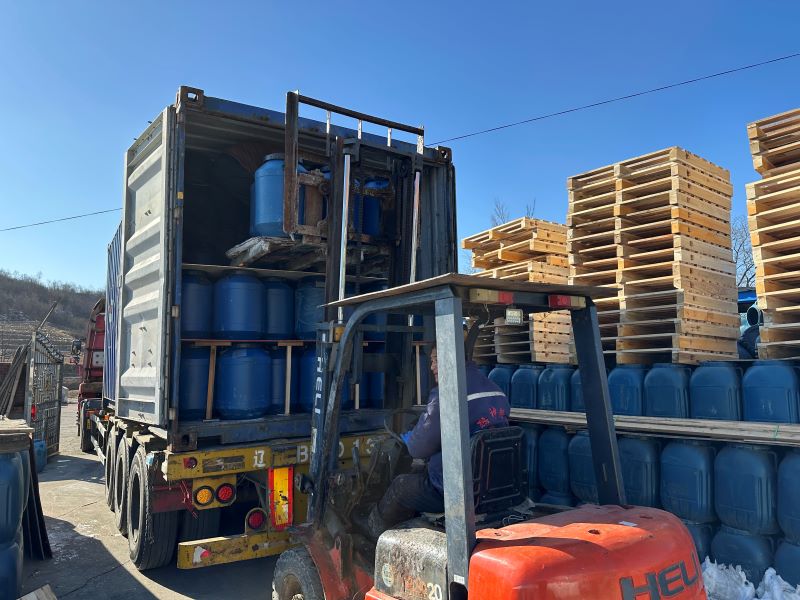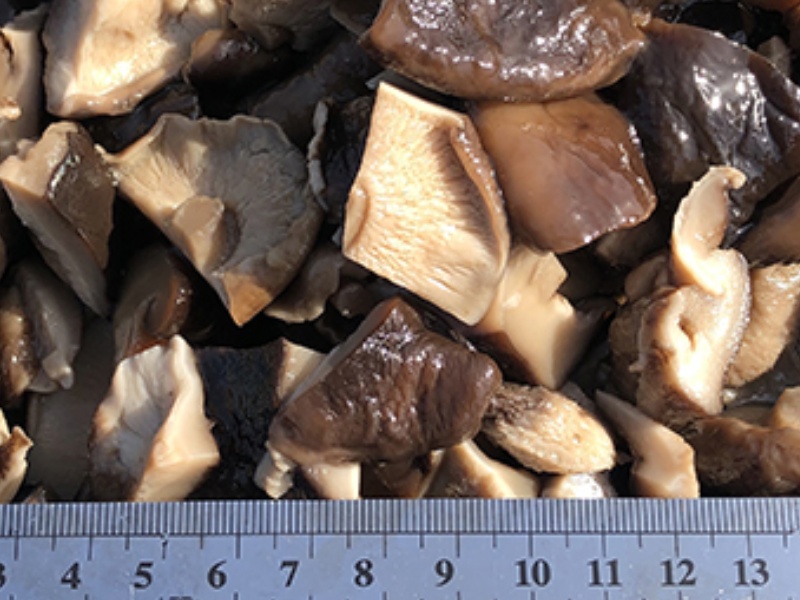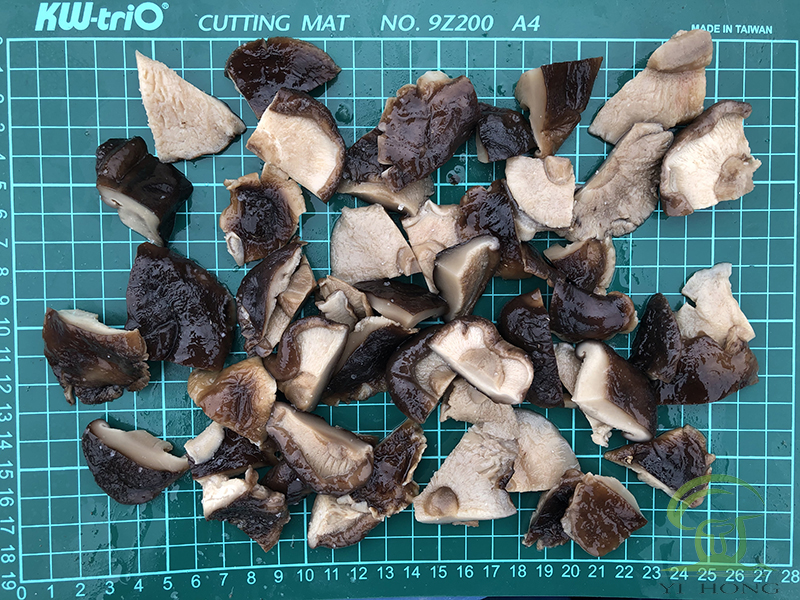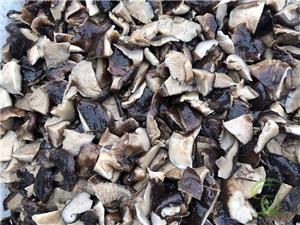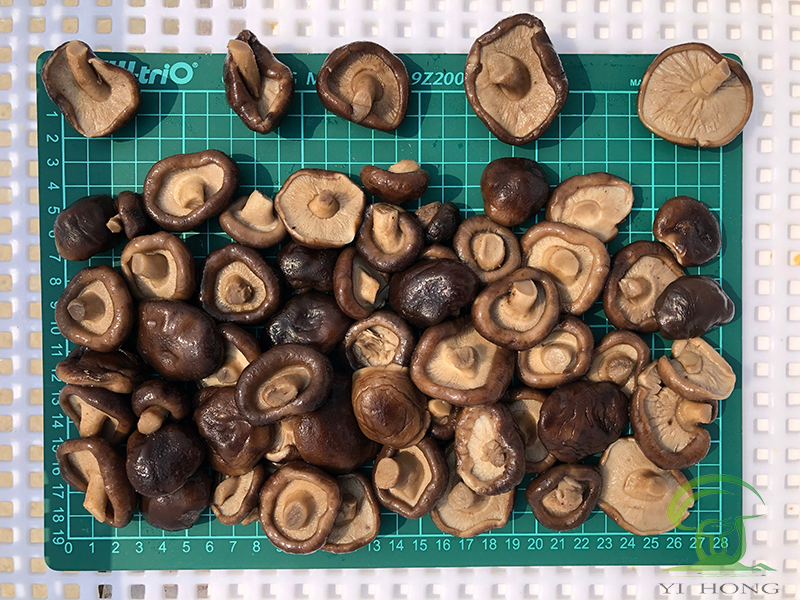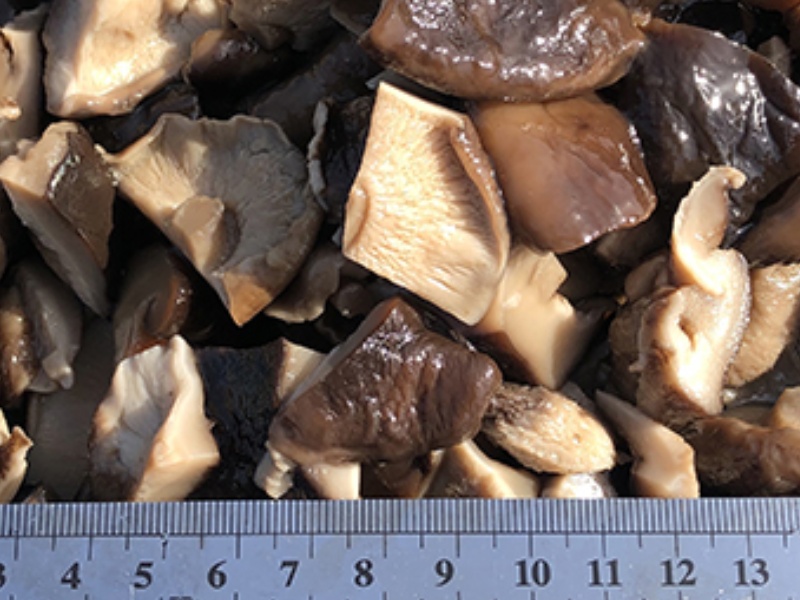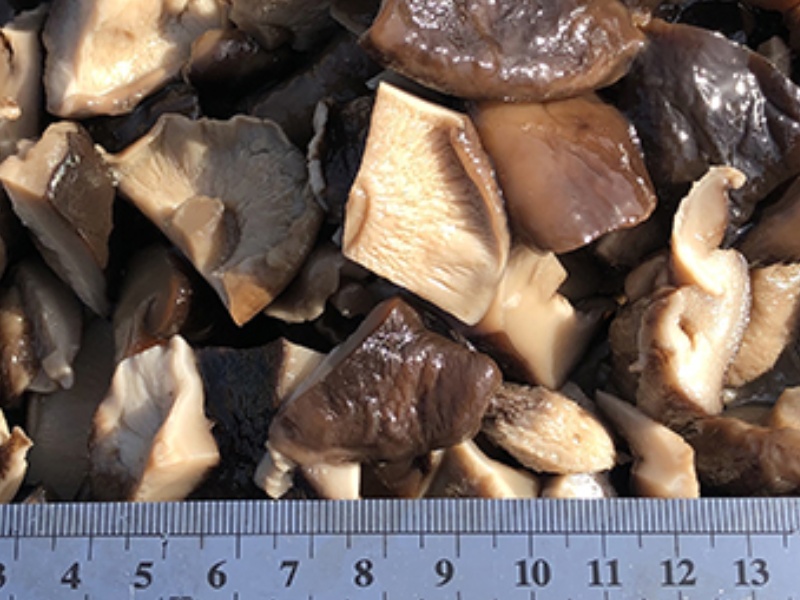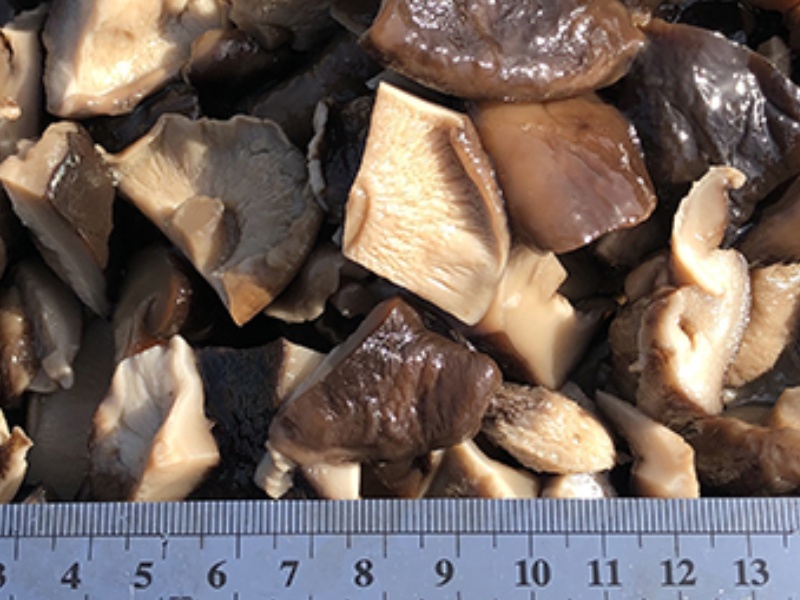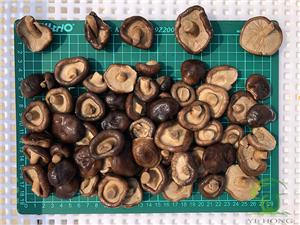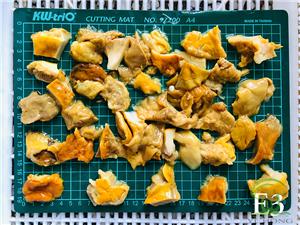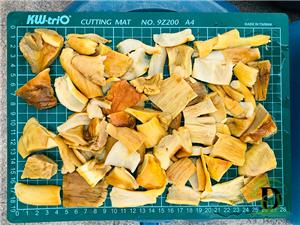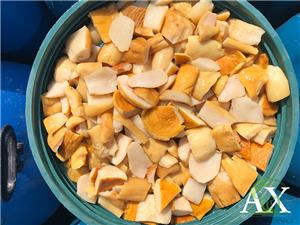Shiitake In Brine Cubes

- YIHONG
- Anshan, China
- 20days
- 150tons/month
1. Our shiitake in brine cubes have unique production technology and taste.
2. Our shiitake in brine cubes maintain the original delicious taste.
3. Our shiitake in brine cubes retain the nutritional content of shiitake mushrooms.
Introduction of brined shitake mushroom cubes:
Brined shiitake mushroom cubes are foods made from high-quality fresh shiitake mushrooms pickled in special salt water. Fresh shiitake mushrooms are strictly selected and processed to ensure the quality of Shiitake mushroom cube. Subsequently, a unique brine pickling process is used to give shiitake mushroom cube unique advantages in taste and flavor.
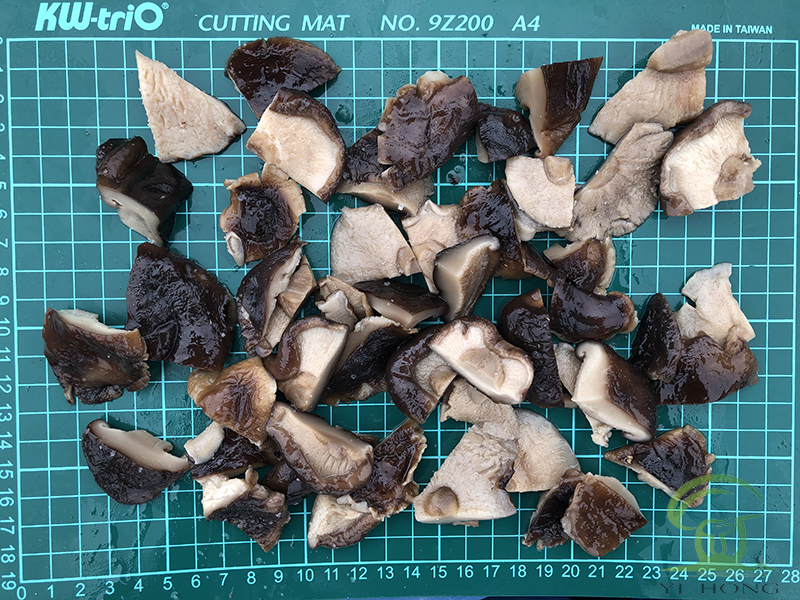
Advantages of brined shiitake mushroom cubes:
Shiitake mushrooms in brine maintain the original freshness and tenderness of shiitake mushrooms, making them more delicious when eaten. The essence in the salt water is fully absorbed by the shiitake mushrooms, retaining the nutrients of the shiitake mushrooms, making shiitake mushrooms in brine more beneficial to health. Due to the particularity of the production process, Shiitake mushrooms in brine have a wide range of uses in cooking and can be used in a variety of dishes such as soups, stir-fries, and salads.
Why choose us:
1. High-quality raw materials: We use fresh and high-quality shiitake mushrooms as raw materials to ensure the taste and nutrition of the product.
2. Unique process: We use a unique brine pickling process, which gives the mushroom cubes an advantage that other products cannot match in terms of taste and flavor.
3. Strict quality control: We conduct strict quality control on every batch of brined shiitake mushroom cubes to ensure that the products meet high quality standards.
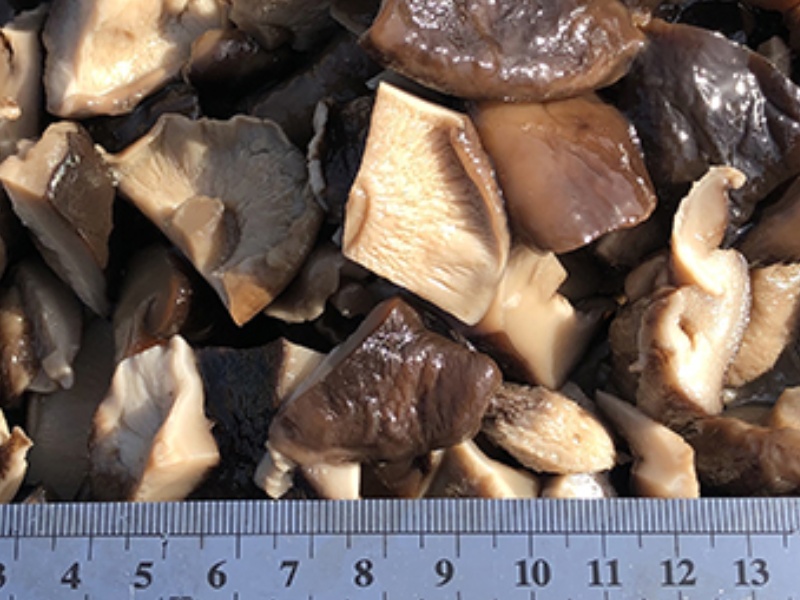
Tips:
During the pickling process, shiitake mushrooms in brine may rot if you are not careful. However, according to our years of experience, paying attention to the bright spots can reduce the rot of brined shiitake mushroom cubes
Salt control:
Salt plays a key role in the pickling process of mushrooms. If there is insufficient salt, mushrooms may become rancid after 15 days of pickling, which is manifested by yellowing of mushroom color and disappearance of aroma. This not only affects the appearance and taste, but may also be a symbol of corruption. For minor cases, they can be reprocessed by re-adding salt (10-15%); but mushrooms with serious odor should be removed immediately. Salt should be added strictly in proportion during the pickling process, such as 300 kg of salt for every 1,000 kg of finished product, to ensure that the mushrooms can fully absorb salt during the pickling process, inhibit the growth of microorganisms, and thus avoid rancidity.
Acidic environment:
Mushroom processing needs to be carried out in an acidic environment. An alkaline environment will cause the mushrooms to turn black and rot, seriously affecting the quality of the product. Therefore, the pH value should be strictly controlled during the processing and alkaline substances should be avoided. Citric acid is a commonly used acidity regulator. 3 kg of citric acid can be added to every 1,000 kg of finished product to maintain a suitable acidic environment.
